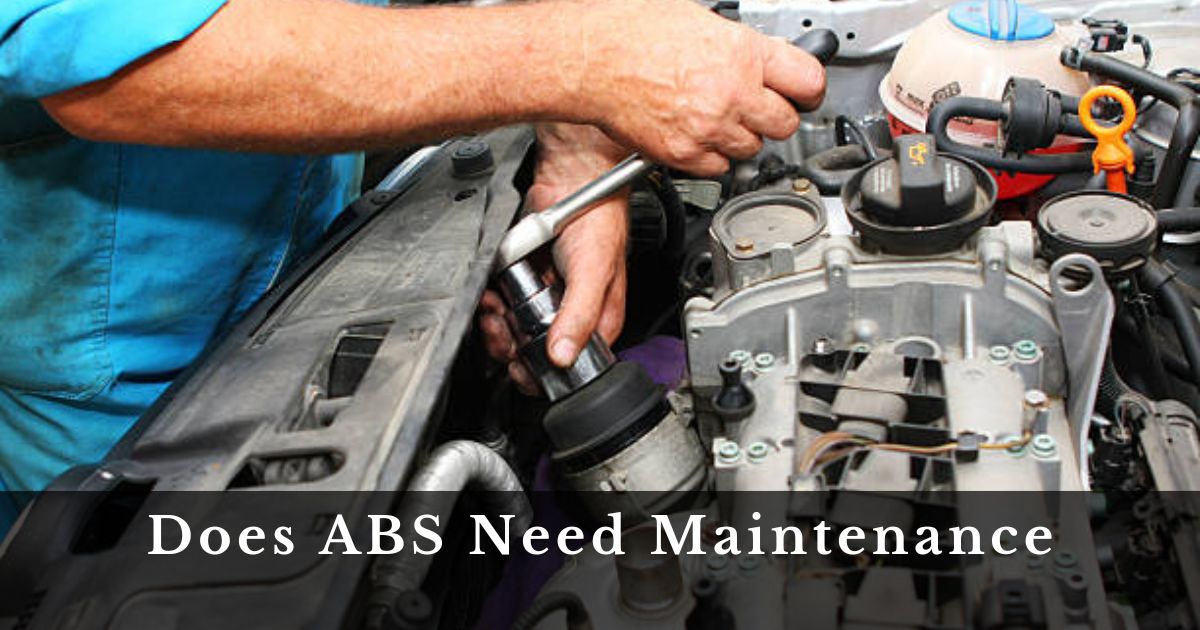Does ABS need maintenance, Vehicle safety is really important to drivers. One important part of keeping vehicles safe is something called the Anti-lock Braking System (ABS). But some drivers are unsure if ABS needs any maintenance to work well. In this article, we’ll talk about how ABS works and whether it needs regular maintenance.
Does ABS Need Maintenance?
The Anti-lock Braking System (ABS) is a critical safety feature in modern vehicles, designed to prevent wheels from locking up during emergency braking situations, thus maintaining steering control. However, like any other system in a car, ABS requires maintenance to ensure it functions effectively and keeps drivers safe on the road.
Understanding ABS
ABS is a safety feature installed in vehicles to prevent skidding and maintain control during sudden braking. It works by modulating brake pressure to individual wheels, preventing them from locking up, which could result in loss of control.
What is ABS?
ABS, or Anti-lock Braking System, is a safety mechanism in vehicles that prevents wheels from locking up during braking, allowing drivers to maintain steering control.
How does ABS work?
ABS monitors the speed of each wheel using sensors. When it detects that a wheel is about to lock up, it releases brake pressure momentarily, then reapplies it rapidly. This process prevents skidding and helps the driver maintain control of the vehicle.
Why is maintenance important for ABS?
Regular maintenance of ABS is crucial to ensure its proper functioning. Neglecting maintenance can lead to decreased effectiveness during emergency braking, compromising safety on the road.
Routine Checks for ABS
Visual inspection
Inspect ABS components for any signs of damage or wear regularly.
Brake fluid inspection
Check brake fluid levels and quality to ensure proper ABS operation.
Brake pad and rotor inspection
Regularly inspect brake pads and rotors for wear and tear, as these components directly affect ABS performance.
ABS sensor inspection
Check ABS sensors for any dirt or debris that could interfere with their functionality.
Common ABS Issues
Warning lights
Pay attention to ABS warning lights on the dashboard, as they indicate potential issues with the system.
Strange noises
Unusual noises during braking could signal ABS problems and should be investigated promptly.
Brake pedal behavior
Changes in brake pedal behavior, such as pulsation or stiffness, may indicate ABS issues.
When to Seek Professional Help?
If you experience any of the above issues or notice a decline in ABS performance, it’s essential to consult a professional mechanic for a thorough inspection and necessary repairs.
DIY ABS Maintenance Tips
Cleaning ABS sensors
Regularly clean ABS sensors to ensure accurate readings and proper functioning.
Flushing brake fluid
Flush brake fluid according to the manufacturer’s recommendations to maintain ABS performance.
Checking brake pads and rotors
Inspect brake pads and rotors regularly and replace them as needed to prevent ABS problems.
In conclusion, ABS is a vital safety feature in modern vehicles that requires regular maintenance to ensure optimal performance. By conducting routine checks and addressing any issues promptly, drivers can help keep themselves and others safe on the road.
FAQs
How often should I check my ABS?
It’s recommended to inspect ABS components during regular vehicle maintenance, typically every 6-12 months.
Can I drive safely if my ABS light is on?
While your vehicle is still operational with the ABS light on, it’s essential to have it checked by a professional as soon as possible to identify and address any issues.
Is ABS maintenance expensive?
Routine maintenance tasks for ABS, such as sensor cleaning and fluid checks, are relatively inexpensive compared to potential repair costs resulting from neglected issues.
What should I do if my ABS is not working?
If you suspect that your ABS is not functioning correctly, it’s crucial to have it inspected by a qualified mechanic to diagnose and resolve any underlying problems.
Can I disable ABS if it’s not working correctly?
While it’s technically possible to disable ABS, it’s highly discouraged as it compromises vehicle safety. Instead, address any ABS issues promptly through professional repairs.



